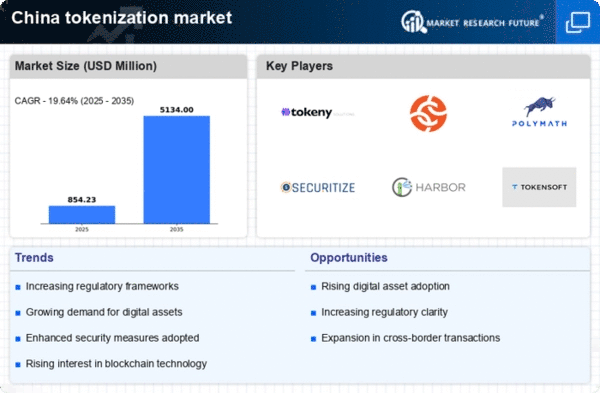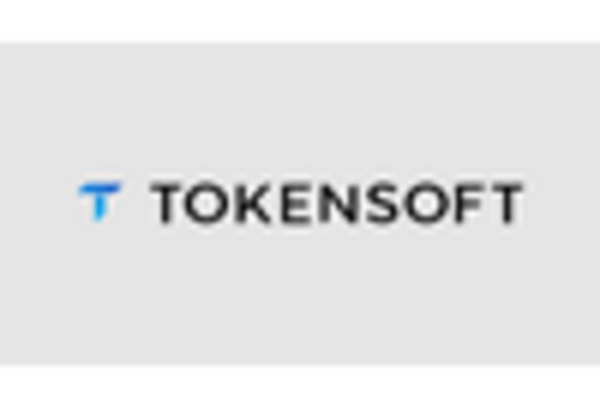Increased Cybersecurity Threats
The rise in cybersecurity threats in China has propelled the demand for robust data protection mechanisms, thereby influencing the tokenization market. With cyberattacks becoming more sophisticated, organizations are increasingly adopting tokenization to safeguard sensitive information. In 2025, it is estimated that the cybersecurity market in China will reach approximately $40 billion, indicating a strong correlation between security concerns and the growth of the tokenization market. As businesses seek to comply with stringent data protection regulations, the adoption of tokenization solutions is likely to accelerate, reflecting a broader trend towards enhanced security measures in the digital landscape.
Regulatory Compliance Pressures
In China, the evolving regulatory landscape surrounding data privacy and protection is exerting pressure on organizations to adopt tokenization solutions. The implementation of laws such as the Personal Information Protection Law (PIPL) necessitates that businesses implement stringent data security measures. As compliance becomes increasingly critical, the tokenization market is likely to experience heightened demand. Companies that fail to adhere to these regulations may face substantial fines, which further incentivizes the adoption of tokenization as a means of ensuring compliance. This regulatory environment is expected to drive innovation and investment in the tokenization market, as organizations seek to align with legal requirements.
Rising Awareness of Data Privacy
The growing awareness of data privacy among consumers in China is influencing the tokenization market. As individuals become more informed about their rights regarding personal data, businesses are compelled to adopt measures that protect sensitive information. Surveys indicate that over 70% of Chinese consumers express concerns about data security, prompting companies to implement tokenization as a proactive approach to safeguard customer data. This shift in consumer sentiment is likely to drive demand for tokenization solutions, as organizations strive to build trust and enhance their reputations in an increasingly competitive market. The emphasis on data privacy is expected to be a key driver for the tokenization market.
Growing Adoption of Digital Payments
The rapid expansion of digital payment systems in China is significantly impacting the tokenization market. With the increasing prevalence of mobile wallets and online transactions, businesses are recognizing the necessity of securing payment data through tokenization. In 2025, the digital payment market in China is projected to surpass $5 trillion, highlighting the urgency for effective data protection strategies. Tokenization serves as a critical solution to mitigate risks associated with payment fraud, thereby fostering consumer trust and encouraging further adoption of digital payment methods. This trend underscores the interdependence between the growth of digital payments and the tokenization market.
Technological Integration in Business Processes
The integration of advanced technologies such as artificial intelligence (AI) and blockchain into business processes in China is shaping the tokenization market. As organizations seek to enhance operational efficiency and security, the adoption of tokenization is becoming more prevalent. The market for AI in China is projected to reach $30 billion by 2025, indicating a significant investment in technology that complements tokenization efforts. This technological synergy not only improves data security but also streamlines processes, making tokenization an attractive option for businesses. The ongoing integration of technology into various sectors is likely to bolster the growth of the tokenization market.
















